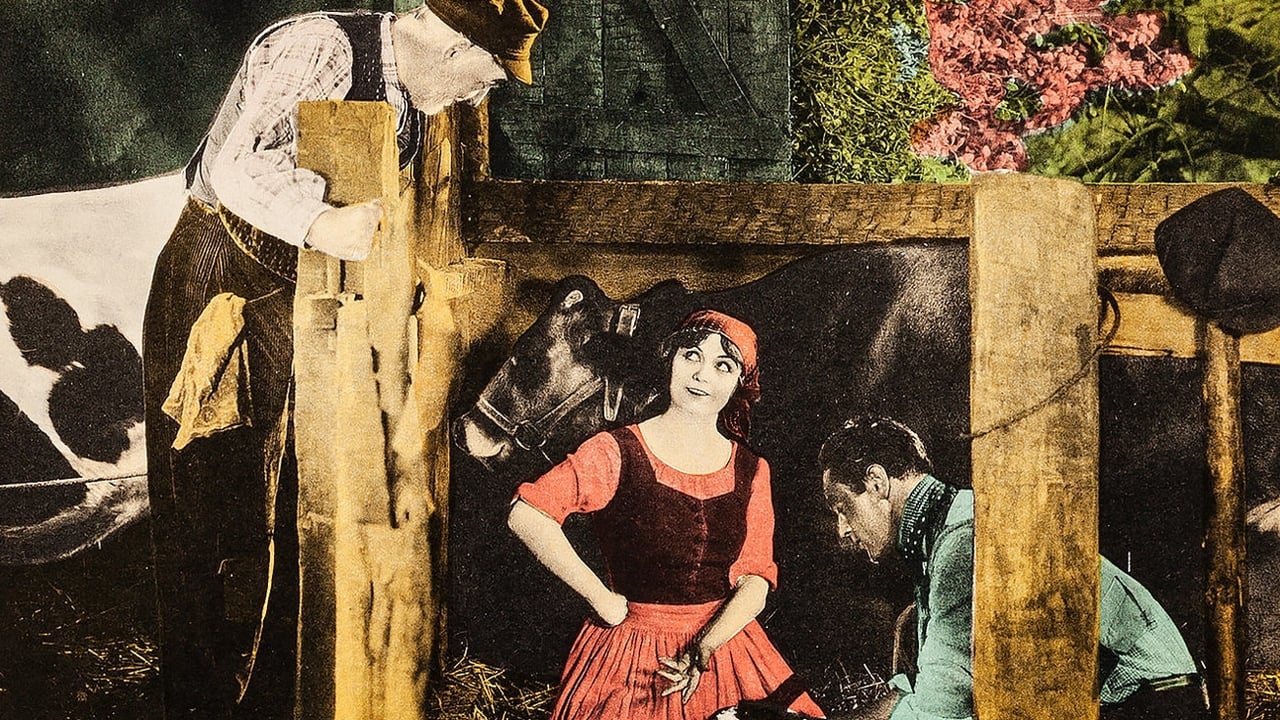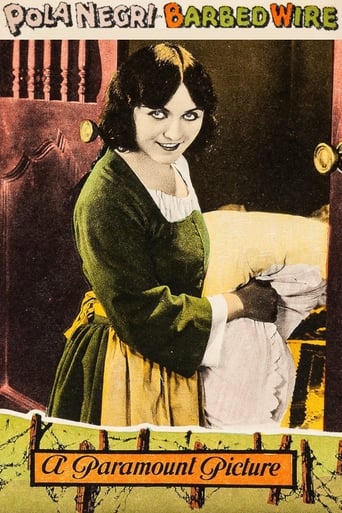SoftInloveRox
Horrible, fascist and poorly acted
Dorathen
Better Late Then Never
ChanFamous
I wanted to like it more than I actually did... But much of the humor totally escaped me and I walked out only mildly impressed.
Sameer Callahan
It really made me laugh, but for some moments I was tearing up because I could relate so much.
mbrindell
This tends to be a quiet film, unlike "The Big Parade" or "Wings." It's less about war and more focused on people's xenophobic hatred toward one another. For that reason, it deserves kudos; however, because of that it is a more difficult movie to sell to audiences and tends wears its heart on its sleeve.Negri, Brook and Cook make wonderfully believable French, German and German, respectively, characters---visually they're perfect. Negri in particular is near the height of her handsome beauty, she being of the broad-backed and strong-shouldered type personified by Nita Naldi and Louise Brooks. Negri is given some wonderful close ups where she virtually glows.Thankfully the movie is absent the stereotypical POW camp clichés such as sadistic guards and tunnel building, and it's for this reason some viewers might be less enthusiastic. I found it a relief.There's an excellent tracking shot of a distraught Negri passing cheering prisoners---simple, but memorable.The film's conclusion was much too saccharine for me, but many today will like it. WWI's horrors were still much too vivid for 1927's moviegoers and they likely needed the salve provided by the film's conclusion. I understand. A better film, "The Four Horsemen of the Apocalypse," handled its similar conclusion better seven years earlier.Negri and Adoree will always be my WWI French heartthrobs.A very good film with fine acting. Recommended.
mlevans
Pola Negri is every bit as good in Barbed Wire as critics had led me to believe. This is a fine film, despite the melodramatic ending that almost seemed to belong to a 1917 silent film more than one from 1927.Negri is lovely and quite restrained in her acting. Clive Brook is solid as her German love interest, if a bit stiff – and definitely a little old looking for her. Actually, the one thing that kept bothering me about Brook was that he looks (to me) like a very young Forrest Tucker! (I kept expecting him to be beaten up by a very young John Wayne or to start hanging out with a very young Larry Storch!) Director Rowland V. Lee shows signs of great things to come. The story moves well and has many memorable moments. One that will stay with me is the scene were Mona is leaving the makeshift courtroom after saving Oskar's life. She is first taken by surprise by her neighbors' venom, then by the German prisoners' adoration. Her surprise at their gesture of respect (tipping their caps and following her inside the barbed wire fence) turns to faint pleasure, but just as quickly begins icing over into discomfort, then concern, then panic, as she realizes that the degree to which her enemy now admires her, her neighbors will scorn her.If the ending had been handled a bit differently, this film would be right up there among the best of the late silent classics, alongside Sunrise, The Crowd, Faust, The Wind and a handful of others. As it is, I would place it in the next tier, not one of the handful of greatest silent films ever, but certainly one of the top handful of films made in 1927. When you consider that Sunrise, Napoleon, My Best Girl, Metropolis, The General, Seventh Heaven, The Loves of Jeanne Ney, King of Kings, etc., all debuted in the Year of Lindberg (and Babe Ruth), that is quite a statement in itself.This is definitely a film for any silent cinema fan and for any other lovers of forbidden romances. The silent cinema was truly peaking in its final years.
artistmom61
I saw Barbed Wire on American Movie Classics about three years ago. I liked it for it's story line of forbidden love as well of its anti-war message. The story stayed with me and still does. I was surprised at how the film could maintain my interest even though I am not of a generation of people who watched silent movies. It is intriguing that actors had to convey emotions and thoughts through actions and expressions and they did a fine job. My peers would be surprised to see the extent of the F/X available in 1927. I would like to see Jerry Bruckheimer or Kevin Costner get a hold of this story and remake for the new generation of movie enthusiasts to enjoy. Not that I don't appreciate the original, I enjoy experiencing good stories in different formats, and I would like to see this one become a classic.
Arthur Hausner
It was a revelation to finally see Pola Negri in one of her silent films. I knew of her reputation as a fine actress, but only saw her in the last American film she made (The Moon-Spinners (1964)) where she had a minor role. Here, she is wonderful as the French farm girl whose hatred of Clive Brook, a German prisoner-of-war in the camp built on her farm, slowly melts. She expresses her anguish beautifully, praying to God not to fall in love with a man from the country causing her brother's death in battle. Brook, in a very low-keyed performance, also shows himself to be an exceptional actor, handling well his concern for her safety from the irate townfolk who brand her a traitor. I could have done without the unsubtle preaching at the end, but this is a minor point. Clyde Cook provides the comedy relief and he's very good at it too. The film is very worth seeing for these actors.Negri at the time was in deep mourning over the death of Rudolph Valentino, with whom she had had a close relationship. It's a shame that her thick Polish accent prevented her from ever achieving stardom in American sound films.

